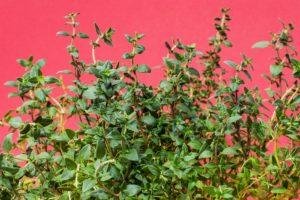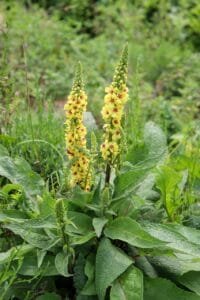
Respiratory health is a vital aspect of overall well-being, as it plays a crucial role in providing the body with oxygen and removing carbon dioxide. Maintaining good respiratory function is essential, particularly for individuals susceptible to various respiratory conditions.
Common respiratory issues such as asthma, bronchitis and allergies can significantly impact one’s quality of life. Asthma, characterized by inflamed airways, leads to shortness of breath and wheezing, while bronchitis involves inflammation of the bronchial tubes and can result in persistent coughing. Allergies can trigger reactions in the respiratory tract, causing discomfort and difficulty in breathing.
In addition to conventional treatments, herbal remedies have emerged as natural alternatives to support respiratory health. Throughout history, various cultures have relied on the therapeutic properties of herbs to alleviate respiratory ailments and enhance lung function. Many herbs contain anti-inflammatory, antimicrobial and expectorant properties that can aid in relieving symptoms associated with respiratory issues. For instance, herbs like eucalyptus and thyme are known for their ability to clear mucus and promote easier breathing. Similarly, licorice root has been traditionally utilized for its soothing qualities, helping to calm irritated airways.
Moreover, some herbal remedies can serve as complementary options alongside conventional medications, providing additional support for those managing chronic respiratory conditions. By integrating these natural solutions into their treatment plan, individuals may find an enhanced sense of relief and improved respiratory function. Understanding how these herbs work and their historical applications in supporting respiratory health is essential. This exploration not only underscores the significance of respiratory wellness but also highlights the potential benefits that herbal remedies can offer in enhancing overall respiratory function.
Top Herbs For Respiratory Health
Various herbs have been used for centuries to support respiratory health, each possessing unique properties that contribute to lung function and overall well-being. Mullein (Verbascum thapsus) for example, is a well-known herb with expectorant properties, which means it helps in clearing mucus from the airways. The leaves contain saponins and flavonoids, compounds that encourage effective lung function. Traditionally, mullein has been used to treat coughs and respiratory infections and recent studies have shown its potential benefits in relieving bronchitis symptoms.
Another herb celebrated for its respiratory properties is thyme (Thymus vulgaris). Rich in thymol, this herb exhibits antimicrobial and anti-inflammatory effects, making it a valuable ally during respiratory infections. Thyme is often used in teas and syrups that help soothe coughs, while its essential oil can also be inhaled to provide relief from congestion. Scientific research highlights its effectiveness in promoting respiratory health and addressing conditions such as asthma and coughs.
Eucalyptus (Eucalyptus globulus) is another prominent herb recognized for its ability to support respiratory health. Known for its active compound eucalyptol, this herb possesses anti-inflammatory and mucolytic properties, which help to loosen phlegm in the airways. Inhaling eucalyptus oil can provide immediate relief from sinus congestion and promote clearer breathing. Studies have confirmed its therapeutic qualities, reinforcing its usage in traditional remedies.

Peppermint (Mentha piperita) with its active component menthol, offers a cooling effect that helps relax the muscles of the respiratory tract, allowing for easier breathing. It also has anti-inflammatory and antimicrobial properties that can aid in alleviating respiratory issues. Peppermint tea or inhaling its essential oil can serve as effective methods for experiencing its benefits. These herbs, among others, provide tangible options for enhancing respiratory health and can be easily integrated into one’s wellness routine.
How To Use Herbs For Optimal Respiratory Health
Utilizing herbs for respiratory health can be an effective way to enhance breathing and overall well-being. There are several methods of preparation that allow individuals to harness the benefits of these natural remedies. Herbal teas, tinctures and essential oils are among the most popular forms for consumption and application.
Herbal teas are perhaps the simplest and most common way to incorporate respiratory supportive herbs into daily routines. To prepare a herbal tea, steep one to two teaspoons of dried herbs, such as thyme or eucalyptus, in boiling water, covering the mug for approximately 10 minutes. Straining the tea and consuming it two to three times a day can offer soothing effects for the respiratory system while promoting easier breathing. Additionally, certain herbs can be combined for enhanced benefits—blending peppermint and ginger, for example, may provide both a refreshing taste and respiratory support.
Tinctures which are concentrated herbal extracts, can also be beneficial for respiratory health. These liquids can be made by soaking the chosen herbs in alcohol or glycerin for several weeks, allowing the active compounds to infuse. For typical dosage, consider 20-30 drops of tincture in a small amount of water, taken two to three times daily. However, it’s essential to follow the manufacturer’s recommendations or consult with a healthcare professional for personal guidance, especially for individuals with specific health conditions.
Another valuable method is the use of essential oils derived from herbs. Oils such as eucalyptus can be added to a diffuser or a pot of simmering water for inhalation. One should exercise caution when using essential oils, ensuring they are diluted appropriately before any skin application. A patch test is recommended to avoid adverse reactions. Incorporating these methods within a balanced lifestyle can effectively support respiratory health while making the most of nature’s offerings.
Embracing Herbal Remedies For Respiratory Wellness
Herbs have been utilized for centuries to promote respiratory health, offering a natural alternative or complement to conventional treatments. Many individuals find that integrating these botanical remedies into their daily wellness routines can lead to significant improvements in their overall respiratory function. The benefits of herbs like eucalyptus, thyme and peppermint extend beyond merely alleviating symptoms. They support the body’s natural healing processes and contribute to a balanced immune response. By leveraging the potent properties of these plants, it becomes possible to enhance lung capacity and improve breathing efficiency.
It is crucial, however, to approach herbal treatments with caution and mindfulness. While nature provides us with a plethora of beneficial herbs, each individual’s health condition and body chemistry can vary significantly. Therefore, consulting with a healthcare professional before initiating any new herbal regimen is highly advisable, particularly for those who have pre-existing health conditions or are pregnant. A qualified practitioner can offer tailored advice and ensure that any herbal remedies chosen are safe, effective and align with the individual’s health status.
Moreover, embracing a holistic approach that encompasses not just herbal remedies, but also balanced nutrition, regular exercise and mindful practices can create a synergistic effect on respiratory wellness. Readers are encouraged to incorporate herbs into their health strategy with intent and awareness, combining them with informed choices for an overall enhancement in well-being.
The journey to better respiratory health can be significantly supported by the thoughtful integration of herbal remedies. By understanding their benefits, consulting with professionals and adopting a comprehensive health strategy, individuals can foster a more resilient respiratory system and improve their quality of life.
This post may contain affiliate/referral links. Read my full Disclosure/Disclaimer Policy.


